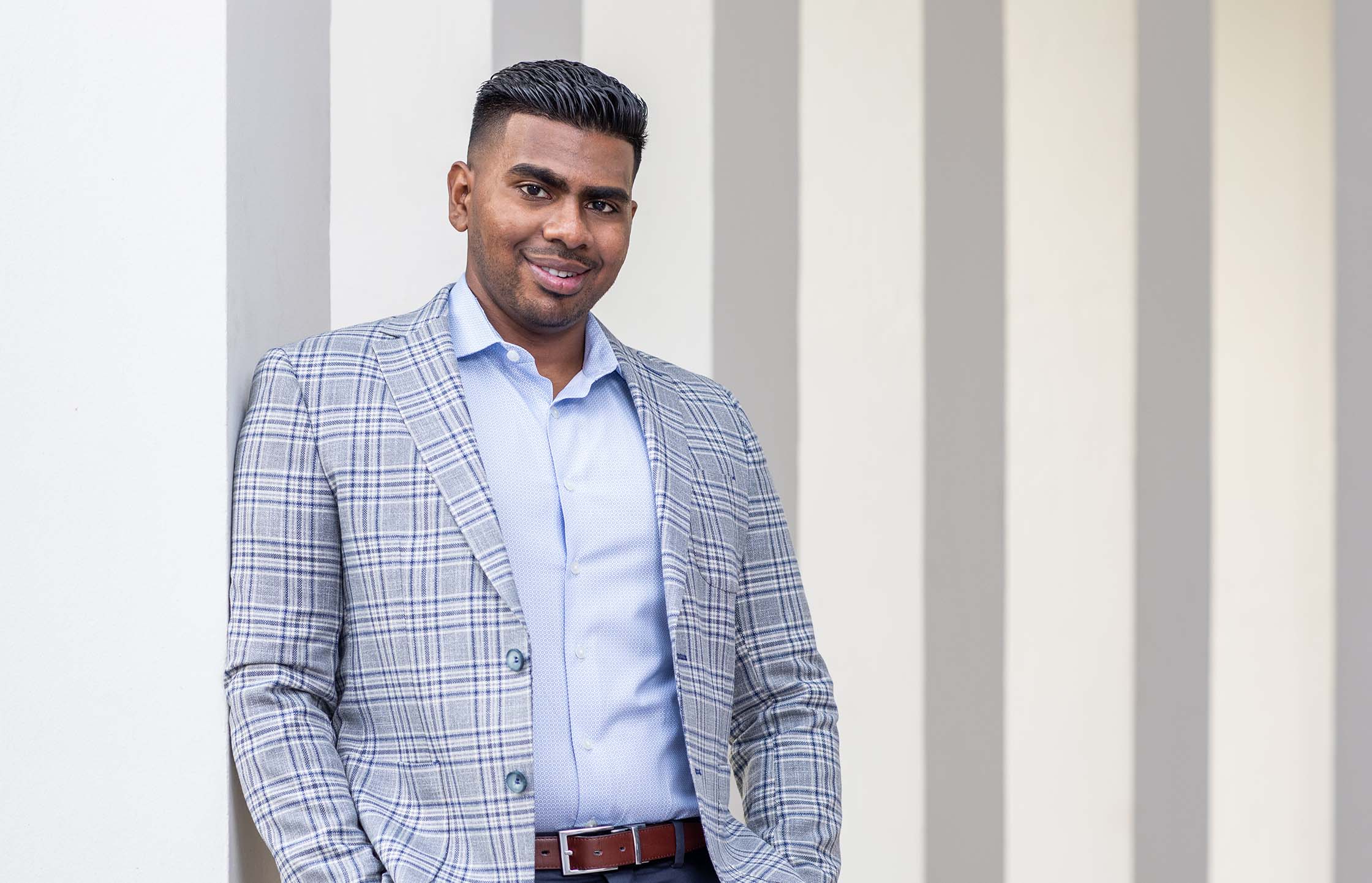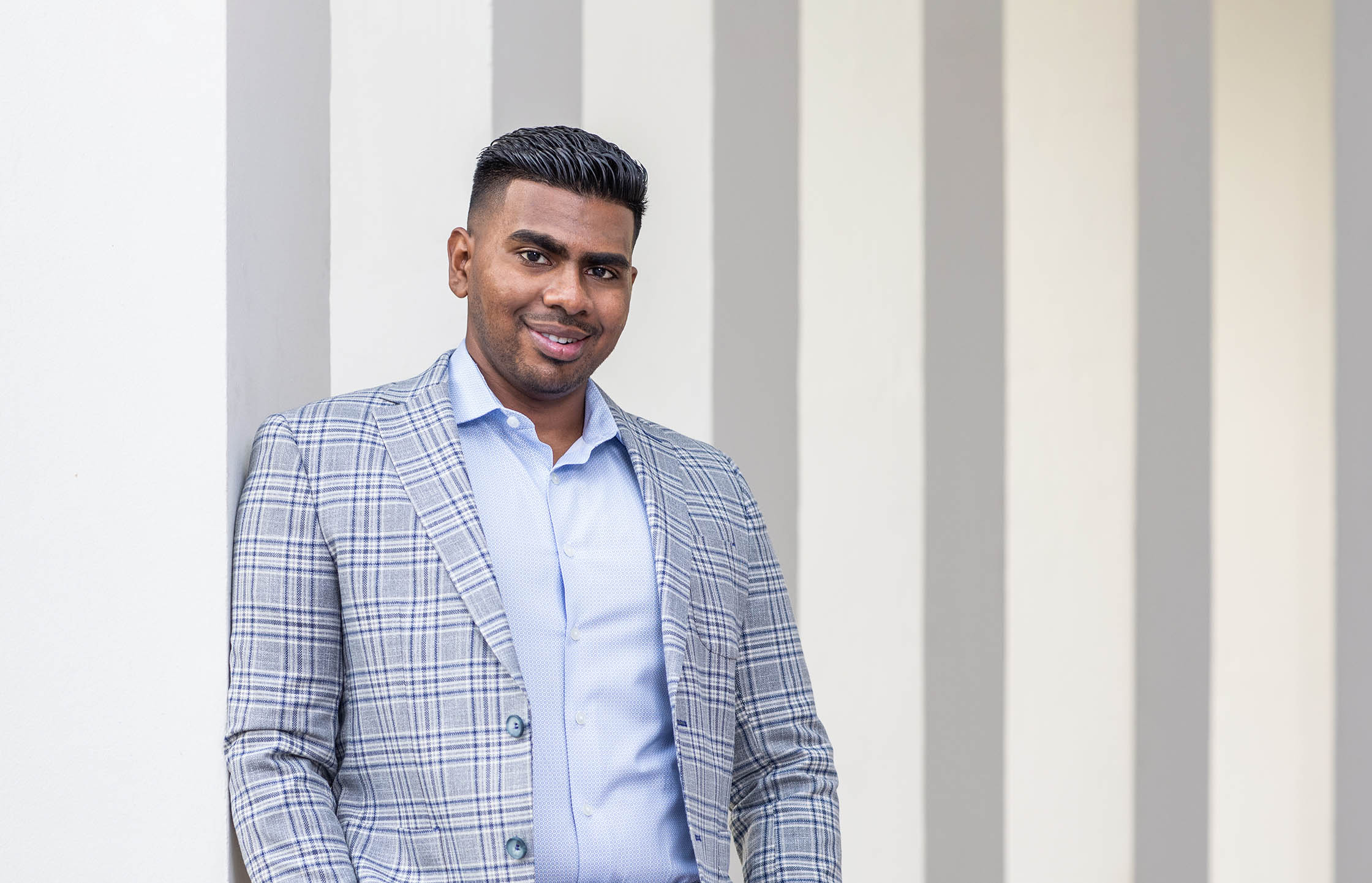Prevailing in the Time of COVID
Despite a rough start during the pandemic, this student is finishing his medical education having made a difference
By Bob Woods
Photography by Kiko Ricote

Aaron Gurayah
T
In March 2020, Aaron Gurayah, now a fourth-year M.D. student, had just one semester under his belt when the COVID-19 pandemic struck. Hardly the ideal scenario for starting medical school, but Gurayah used the downturn to firm up his future.
“It was a huge shock and a tough transition,” he said. “Classes went remote, and it was hard to get into the hospital and shadow specific specialties. I was lucky, though, to experience one semester in person and connect with faculty and peers.”
As an undergraduate at Princeton University, Gurayah studied molecular biology and global health, which introduced him to issues involving environmental stressors and health care disparities. Recognizing that those factors exist in Miami, and having family in the community, motivated him to attend the Miller School.
Gurayah narrowed his research focus to urology, specifically men’s and women’s health and fertility. He gained valuable insights by participating in a research project led by Raveen Syan, M.D., assistant professor of clinical urology, which studied the disparities in care for minority women with pelvic floor disorders.
Preliminary results indicate no differences in disease severity or prevalence based on race or ethnicity among the 131 women in the study, “yet one-third were unaware of treatment options, and less than half eventually received treatment,” Gurayah said. As a strategy to overcome these inequalities, the Miller School’s Desai Sethi Urology Institute intends to work with community partners to raise awareness of the disorder.
Gurayah has matched at Weill Cornell Medicine for urology residency and foresees a fellowship in this specialty. Ultimately, he’d like to divide his time between clinical and surgical services, research on health disparities, and a faculty position. Then, as now, he’ll reflect on his pandemic experience. “I benefited being a medical student during the height of COVID,” he said, “because it presented challenges that strengthened my education.” ![]()



